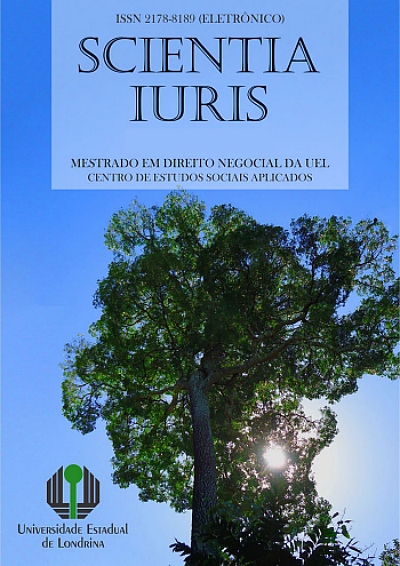Alternatives for sustainable development and conciliation with economic growth: Historical perspectives of influence on liberalism
DOI:
https://doi.org/10.5433/2178-8189.2018v22n2p115Keywords:
Sustainable development. Economic interests. Liberalism. Alternatives.Abstract
With the expansion of production methods and the growing speed of product and idea dissemination, society and specifically the market concentrates their attention on consequent economic growth. In this sense, it is important to identify viable alternatives for sustainable development and analyze all the possibilities of conciliation in this context. Moreover, this paper also analyzes the influences of liberalism in the process of isolating the individual in relation to environmental issues, thusly finding it necessary to confront private interests, often dominant in society, as a means to guarantee public interest and protection of the environment. In order to achieve these objectives, this paper utilized the deductive approach, since it starts analyzing general concepts and then later applying it to specific cases. In conclusion, our research indicates a paradigm shift in the concepts of development, demonstrating that effective participation of the State and the citizens are viable alternatives for sustainable development.Downloads
Download data is not yet available.
Downloads
Published
2018-07-31
How to Cite
Málaque, D. D. M., & Araujo Junior, M. E. de. (2018). Alternatives for sustainable development and conciliation with economic growth: Historical perspectives of influence on liberalism. Scientia Iuris, 22(2), 115–147. https://doi.org/10.5433/2178-8189.2018v22n2p115
Issue
Section
Artigos
License
Copyright (c) 2022 Scientia Iuris

This work is licensed under a Creative Commons Attribution 4.0 International License.
The journal reserves the right to modify, in the original text of the submitted article, normative, spelling and grammatical mistakes in order to maintain the cultured standard of language and the credibility of the journal. The journal will respect the authors' writing style. Changes, corrections or suggestions of conceptual order will be sent to the authors, when necessary. In such cases, the articles will be re-examined. The final exams will not be sent to the authors. The published works become the property of the journal, in other words, its total or partial reprinting is subject to the express authorization of the journal. In all subsequent citations, the original source of publication shall be cited and in the case of Photographic Speeches, shall be approved by the original author. The opinions expressed by the authors of the journal's articles are of their sole responsibility.

















